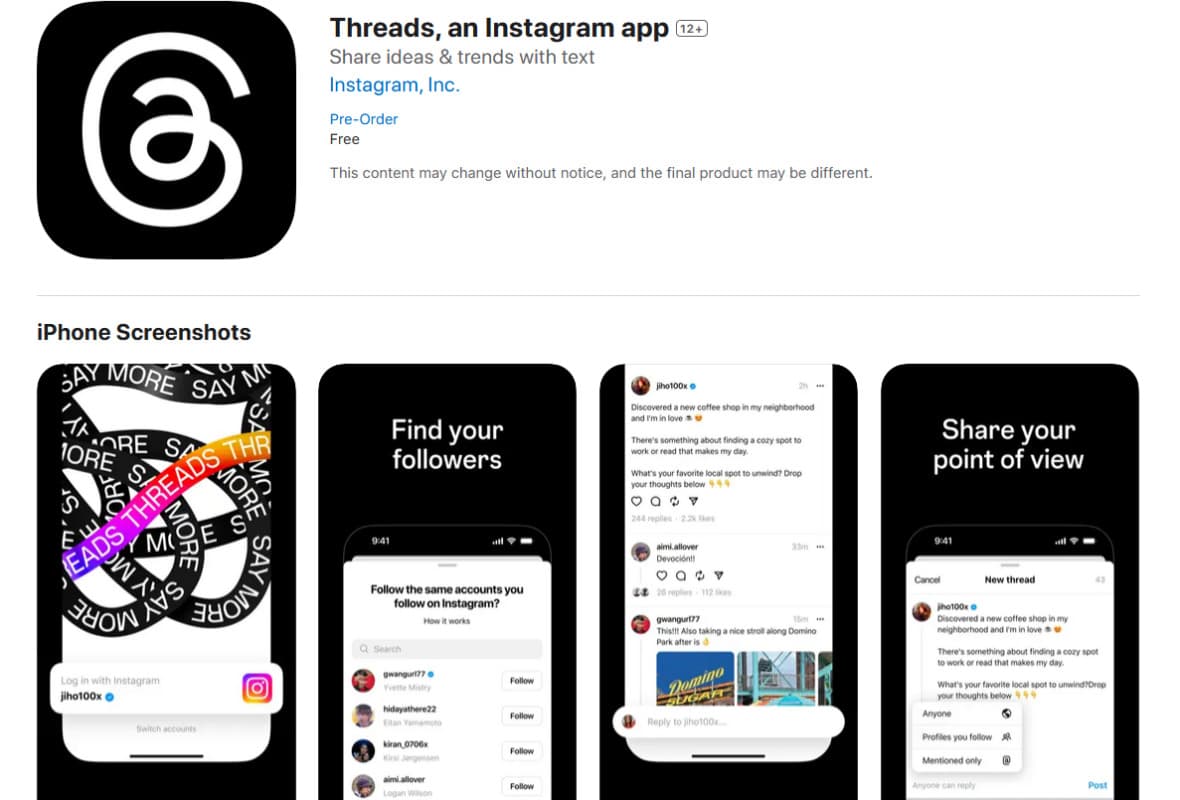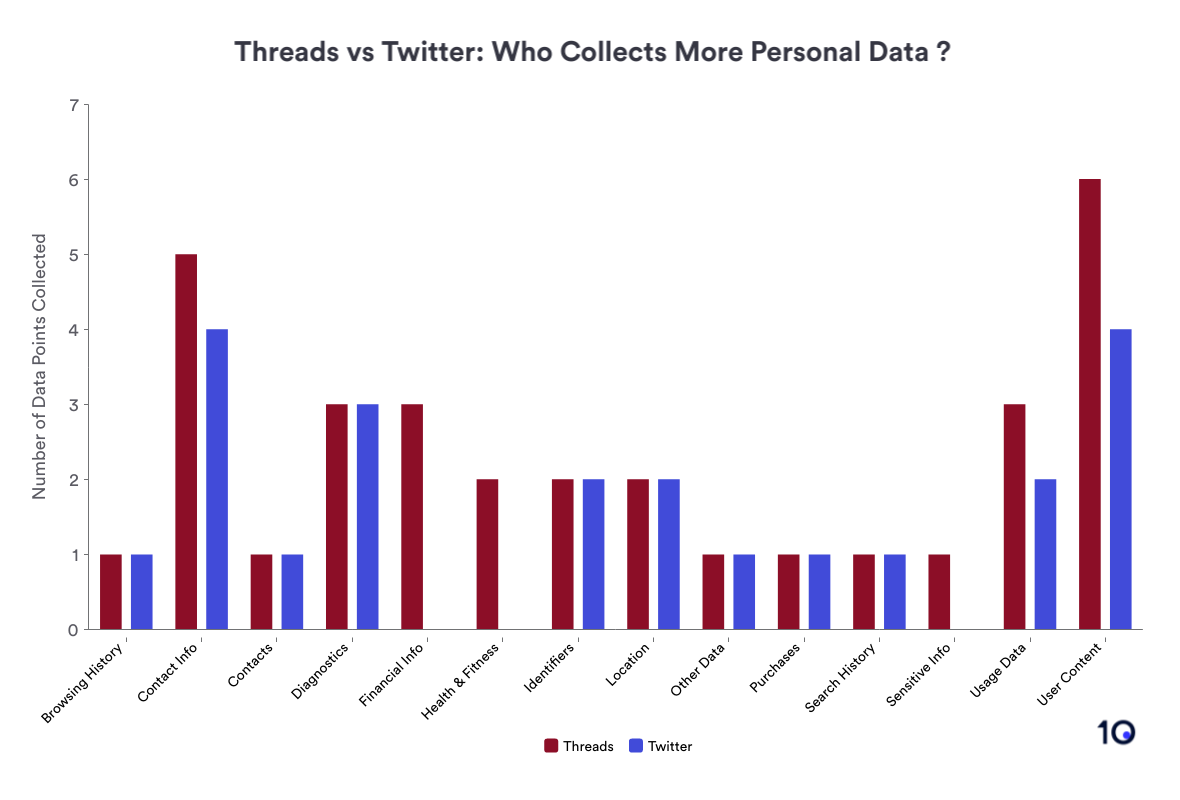Does Threads Collect More Personal Data Than Twitter?
Ahead of the July 6 launch of the new Threads mobile app, we have done a comprehensive analysis of how it stacks up against main rival Twitter in terms of data collection.
Our goal is to go a little deeper than the disappointingly surface-level public debate over Threads’ privacy practices and, as part of our ongoing work to raise awareness around digital privacy, allow people to make an informed choice between the two social media networks.
Meta has a reputation for voraciously gobbling up user data to feed the advertising tools that underpin its business model and the initial response to the unveiling of Threads, which was added to the App Store for pre-order on July 4, has mainly been one of horror at the scale of data collection, as indicated by the privacy labels on its store listing.
These privacy fears have been enthusiastically stoked by former Twitter founder Jack Dorsey, who now is a director at new social media platform Bluesky, and Musk. Of course both of these high profile personalities have an interest in discouraging their users from switching to Threads.
All your Threads are belong to us https://t.co/FfrIcUng5O pic.twitter.com/V7xbMOfINt
— jack (@jack) July 4, 2023
However, the vast majority of the coverage of Threads’ privacy practices has regurgitated the simplistic narrative propagated by Dorsey and Musk.
By analyzing and comparing the App Store privacy labels in full, as opposed to simply the summary shared by Dorsey and Musk, we found that it’s not completely clear-cut which app is better from a privacy perspective. We also analyzed the full privacy policies of each platform.
Threads certainly collects more personal data points than Twitter does. However, Twitter uses 10 data points to track users across the internet, something which Threads claims not to do at all.
Notably, however, Threads does collect data in categories where Twitter does not, including Health & Fitness, Financial Info and Sensitive Info.
A significant caveat at this stage is that Apple’s privacy label system is not without its flaws, not least that the labels are self-reported and not audited by any third party. They are also frustratingly non-specific.

